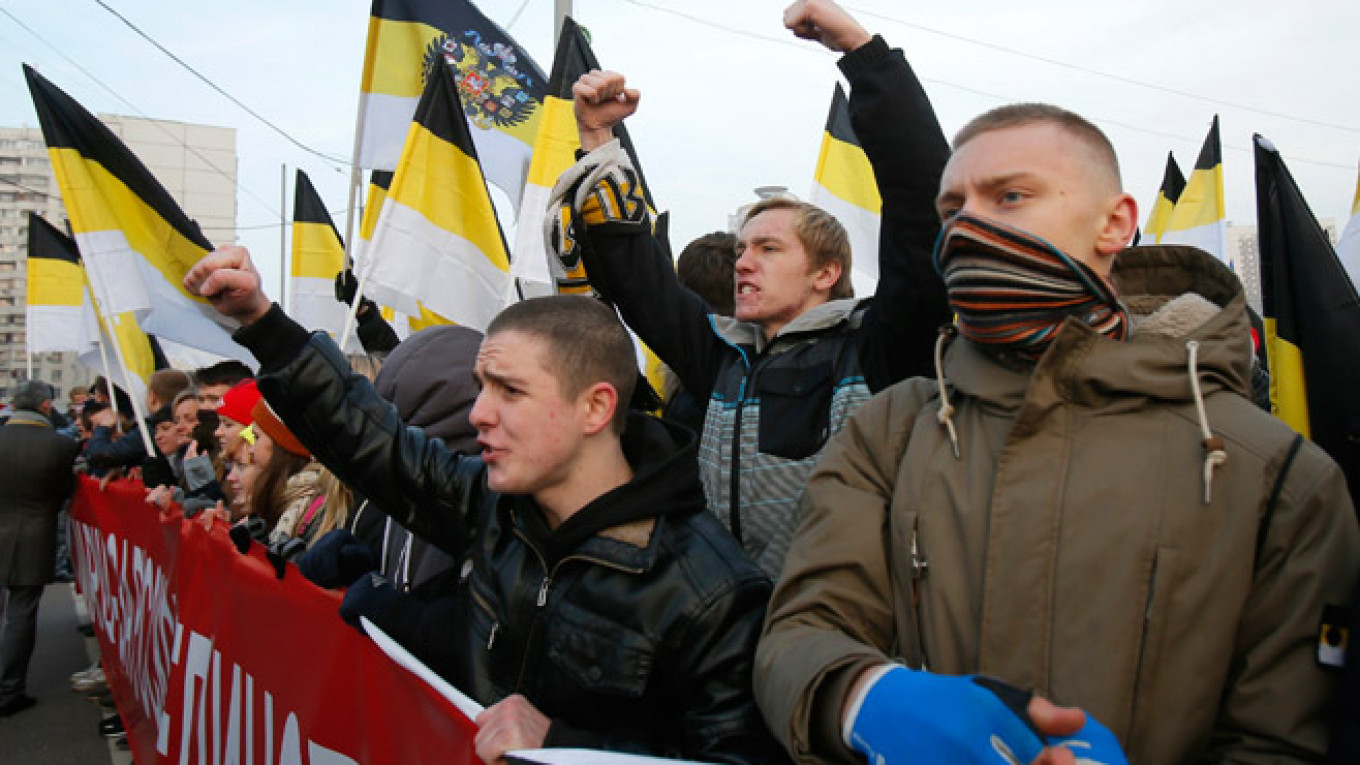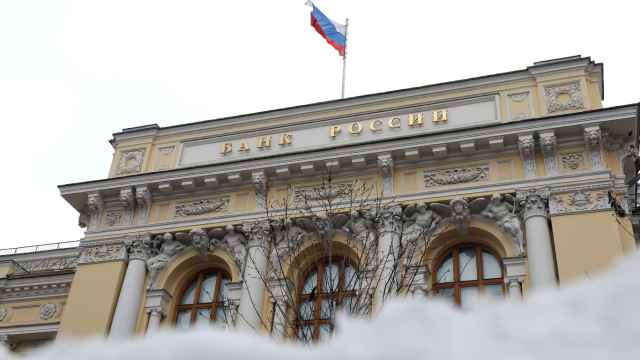When thousands of Russian men gather in columns at the annual nationalist Russian March and shout out such absurd slogans as "Russia is an Orthodox country" (as compared with what — a Buddhist country?) or "Russian social order for Russia" (as compared with which social order now?), what they are really saying is, "Be a real man." And they direct their words not at the authorities, who are, frankly, just more of the same sort, but at the women of Russia, who have become overly insolent.
To be macho or not to be macho, that is the question. This dilemma is a source of tension and requires an outlet to let off steam.
Russia often describes itself as a patriarchal country, although that is not really the case. We find that the writing of Russia's most touted authors — figures such as Vasily Rozanov, Sergei Yesenin and Venedikt Yerofeyev — is imbued with an infantile matriarchal cult, as many literary critics have observed. The work of Eduard Limonov is probably more the exception than the rule. Official rhetoric aside, Russia is a matriarchal country, and women — despite high-sounding claims to the contrary — enjoy a privileged position.
The recent announcement by Alexei Mozgovoi — one of the leaders of the self-proclaimed Luhansk People's Republic — that he would arrest young women who frequent cafes and nightclubs only proves it. If relationships in Russian families even approximated the order found among Muslims who practice sharia, those young ladies would never have ended up in nightclubs. They would have done as Mozgovoi suggests and sat at home baking pies and embroidering.
But fortunately for Russian women, the reality in this country is such that not a single man has the right to force them to remain locked indoors, kneeling before an icon in the corner. To the contrary, the Soviet attempt to free women from the burdens of the patriarchal family and give them equality with men overshot the mark. And no matter how much propagandists like political analyst Alexander Dugin try to portray Russia as an archaic and even medieval society, such ideas remain just words on paper.
The cult of the mother — multiplied by the success of emancipation and the high divorce rate — creates a climate in which men feel disoriented. To be macho or not to be macho, that is the question. This dilemma is the source of tension and requires an occasional and powerful outlet, a way to let off steam. One option, and far from the only one or the worst, is the Russian March.
Parading in "fearsome" Nazi-like uniforms gives Russian men confidence in themselves and helps them renew the armor of masculinity worn thin by family scandals.
Marching together they feel like "real men," and that at least temporarily erases the gap between the macho code of conduct and the actual state of affairs.
The Russian March is very much like a Russian banya, or sauna — a place where men go to get away from women, let go of their accumulated irritations, gather strength and find refuge from outside pressures.
The Russian March is like Maidan in Kiev, only instead of former Ukrainian President Viktor Yanukovych, the "protesters" lash out at a caricature of the Russian wife — fat, acid tongued and eternally dissatisfied.
The Russian March resembles a gathering of Henpecked Men Anonymous. Through the racist slogans, the experienced anthropologist hears something like:
"Hi, my name is Ivan. My wife threw an absolute fit and forced me to take out a huge mortgage. I have no idea how I'll manage now."
Or else, "Hi, my name is Pyotr. My girlfriend calls her crazy mom five times a day."
"Hi, my name is Anton. My wife can't cook, and I don't know how to force her into the kitchen to make something for me and the kids to eat."
The men who yell out "Russia for Russians" actually mean to say that "Russia is for Russian men." It is a yearning for the days when a man could order a woman to do his will.
Coming home full of piss and vinegar after the rally, the Russian man can finally snap back a biting reply to the next viperfish remark aimed at him, tell his mother-in-law and wife exactly what he thinks of them and then pack his things and move in with his mistress. Of course, later he will slink back home begging forgiveness and start accumulating fresh irritations that he will vent at next year's Russian March.
Maxim Goryunov is a Moscow-based philosopher.
A Message from The Moscow Times:
Dear readers,
We are facing unprecedented challenges. Russia's Prosecutor General's Office has designated The Moscow Times as an "undesirable" organization, criminalizing our work and putting our staff at risk of prosecution. This follows our earlier unjust labeling as a "foreign agent."
These actions are direct attempts to silence independent journalism in Russia. The authorities claim our work "discredits the decisions of the Russian leadership." We see things differently: we strive to provide accurate, unbiased reporting on Russia.
We, the journalists of The Moscow Times, refuse to be silenced. But to continue our work, we need your help.
Your support, no matter how small, makes a world of difference. If you can, please support us monthly starting from just $2. It's quick to set up, and every contribution makes a significant impact.
By supporting The Moscow Times, you're defending open, independent journalism in the face of repression. Thank you for standing with us.
Remind me later.






